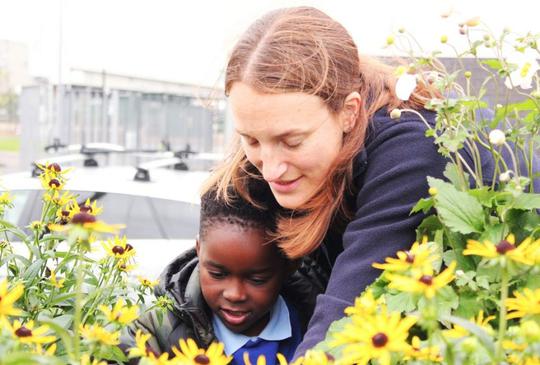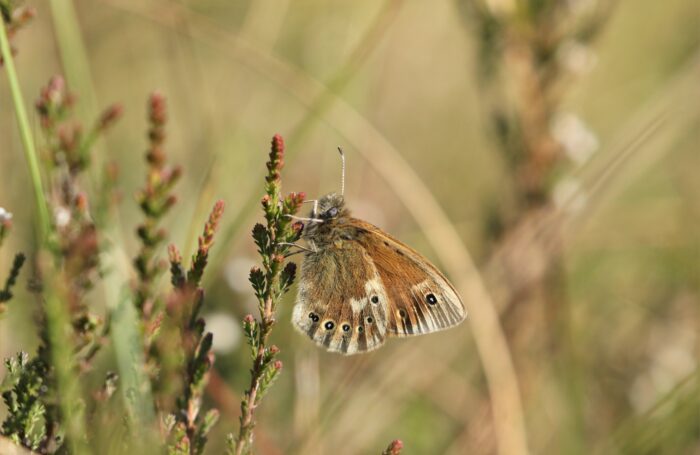Scientists increasingly recognise that experiencing nature helps to reduce stress levels, helps people feel less overwhelmed, more in control of their situation, and allows them to overcome loneliness and low mood.
The value of green and blue spaces for our health and wellbeing is well documented and their importance has become even more apparent during the current crisis. Nature is experienced by all who take their daily exercise, breathe in the (fresher than usual) air and benefit from quiet contemplation. In our current unprecedented situation, we now have an opportunity to build back by capitalising on our renewed awe of nature and addressing the climate and biodiversity emergencies.
The IGNITION project
The IGNITION project has given Groundwork the opportunity to explore nature-based solutions to the climate emergency in even greater detail. Working with nature, solutions such as rain gardens, street trees, green roofs, and the improvement of green spaces can help to tackle socio-environmental challenges including an increase in flooding events, water security, air quality, biodiversity and human health and well-being. The IGNITION project is a ground-breaking project that is developing innovative financing solutions for investment in Greater Manchester’s natural environment. An investment that should help to rebuild the city region.
Groundwork is drawing on its long history of working across Greater Manchester communities, using its relationships with community groups and businesses to engage them in many aspects of the project. Working with RHS and City of Trees, we are creating opportunities for residents across the city region to tell us what they already know, how they feel and what they would like to see when it comes to green infrastructure and climate change. We are delivering surveys, workshops and interactive activities to explore how well residents of Greater Manchester understand the role and benefits of green spaces in relation to climate change and their priorities for increasing the use of nature-based solutions to build resilience in their communities. The results of this first stage work will be published shortly and have been used to inform the language used in IGNITION communications to residents, and general communications on nature-based solutions across Greater Manchester.
Our workshops highlighted the importance of greenspaces to communities, with 99% of participants reporting that greenspaces have a positive impact.
Greenspace and communities
Our workshops highlighted the importance of greenspaces to communities, with 99% of participants reporting that greenspaces have a positive impact. One of the groups who took part, Friends of Turn Moss, noted the powerful potential of greenspaces to bring communities together and as free spaces for people to use, relax in and enjoy. Access to greenspace is seen as valuable for enabling people to feel better connected to their neighbourhood and to each other. They can act as rallying points for tackling issues, providing opportunities for residents to take ownership of their local areas, through formalising ‘Friends of’ groups, forging partnerships and building friendships. These valuable insights have complemented our online survey consultation, by enabling us to explore the reasons behind respondents’ answers and understand the true value of greenspaces to our communities.
The second stage of this work is to work with schools on their understanding of value of green and blue infrastructure, with a view to increasing the commitment to and uptake of nature-based solutions to climate change impacts.
In addition to engaging schools, residents and community groups, we are working with local businesses to understand and mitigate the factors that affect their ability to procure or fund nature-based solutions across their estate. From this engagement, we will better understand Greater Manchester businesses’ current level of knowledge in the area, and build a clearer picture of perceived barriers and drivers. Utilising preliminary baseline information, the second stage will be to focus on key areas identified from this initial analysis. This may mean, for example, that engagement focuses more heavily on awareness raising of the nature-based solutions available, or likely costings, or wider benefits. Finally, we will then reengage with the businesses post-delivery to see what changes there have been.
Groundwork is also drawing on its relationships with the city region’s housing providers to understand and mitigate factors affecting their ability to procure or fund nature-based solutions across their estates and is working ‘one estate at a time’ with residents’ groups and landlords to design hyper-local plans, which include improvements to the green infrastructure.
Finally, as part of the Living Lab developments at the University of Salford, our Landscape Architects are providing advice to support the development of a visual and technical demonstration of the kinds of measures we can use to adapt to the increasing impacts of climate change, e.g. SUDS, living walls, green roofs and rain gardens.
Groundwork has embraced the opportunity to be part of this ground-breaking project and we are delighted to be working with such dedicated and committed partners – learning lots and hopefully contributing lots too.
About Groundwork
Groundwork is a federation of charities mobilising practical community action on poverty and the environment across the UK. We’re passionate about creating a future where every neighbourhood is vibrant and green, every community is strong and able to shape its own destiny and no-one is held back by their background or circumstances. We believe that building more resilient local communities is vital in facing up to the challenges of a globalised economy and a changing climate.





